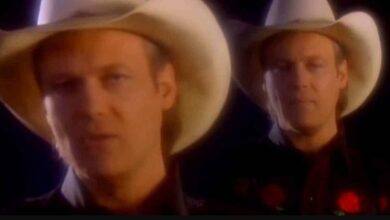Ben Haggard: Stepping Into His Father’s Shoes in Music and Belief
Ben Haggard, son of the legendary Country Singer Merle Haggard, has taken to his YouTube channel to preserve and celebrate his father’s legacy. His channel features a collection of personal performances, each showcasing his deep-rooted connection to country music. Among these performances, his rendition of the famous hymn “Where No One Stands Alone” stands out. This piece, delivered with Ben seated and armed only with his guitar, epitomizes the essence of pure country music, reflecting a profound respect and continuation of his father’s musical heritage.
“Where No One Stands Alone” traces its origins to the 1950s and was penned by hymn writer Thomas Mosie Lister. The song, deeply spiritual in nature, explores the theme of life’s emptiness without the presence of Jesus. Lister’s contribution to gospel and southern gospel music has been widely recognized, evidenced by his induction into the Gospel Music Hall of Fame in 1976 and the Southern Gospel Music Association Hall of Fame in 1997, marking his significant influence in the genre.
The hymn’s journey into the hearts of the masses began with its first commercial recording by the Statesmen Quartet in 1955. This initial rendition paved the way for other Southern Gospel artists to embrace the hymn, leading to versions by the Blackwood Bros. Quartet in 1956, The Jordanaires in 1959, and the Cathedral Quartet in 1966. Each of these groups brought their unique style to the song, enriching its history and solidifying its place in Southern Gospel music.
The hymn also captivated mainstream country artists, leading to its inclusion in numerous albums over the years. Notable renditions were made by Don Gibson in 1958, Loretta Lynn in 1965, and a collaborative version by Elvis Presley with The Jordanaires and The Imperials Quartet in 1967. Ferlin Husky (1968), Merle Haggard (1981), and Alison Krauss with The Cox Family (1994) also contributed their interpretations, showcasing the hymn’s broad appeal and its enduring significance in both the gospel and country music spheres.





